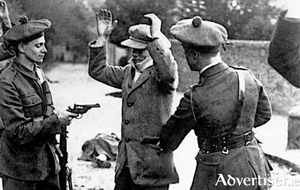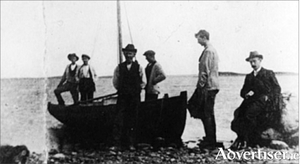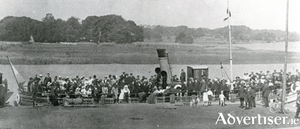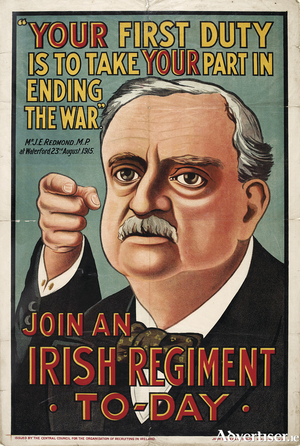Search Results for 'Lloyd George'
9 results found.
The Shawl of Galway Grey
The murderous and vengeful events that followed 'Bloody Sunday' 1920 impacted on the town of Clifden in an unexpected way. There was shooting and murder on its streets; and, following a rampage by the Black and Tans, practically half the town was burnt down.
June 1921 - Britain continues to deny policy of reprisal killings and house burnings in Galway

The election, on May 24 1921 in the six counties of what was to become Northern Ireland, resulted in the Unionist Party winning 40 of the 52 seats. Catholics in the six counties would now be forced to stare down the barrel of partition and sectarianism as a new order was set in place.
Two men of destiny meet on Tawin Island

In his interesting biography of Éamon de Valera,* Diarmuid Ferriter wrote that in December 2000 gardaí seized 24 love letters from de Valera to his young wife Sinéad, which were being advertised for auction by Mealy’s of Castlecomer. It was believed that the letters were stolen in the mid 1970s from the de Valera family home. The owners who had bought them in the UK some years previously in an effort to ensure their return to Ireland, were unaware that they were stolen.
Plaudits for Schmidt despite rugby loss as Brexit charade continues to play out
Last Saturday, like many of our readers, I put aside to watch two main items on television : 1) the rugby quarter-final, Ireland versus the All Blacks, and 2) the proceedings in Westminster when Boris Johnson would endeavour to bring in his settlement with Europe.
‘Beyond our wildest expectations’
Week III
‘Beyond our wildest expectations’
Week III
Lessons from ‘an old schoolmaster’
Week III
A Commercial Club excursion to Cong, 1915

The Commercial Rowing Club was set up in May 1875. The Corrib Rowing and Yachting Club had been in existence since 1864, but as it was the only such club on the river, there was a distinct lack of competition for its oarsmen. Commercial provided that competition.
A letter sent to GA Hayes-McCoy

One hundred years ago there were a series of truly terrible battles on the Western Front which were watched anxiously in Ireland as elsewhere. On June 7, near the Belgian village of Messines, the Allied army won a substantial victory. It gave hope, which turned out to be tragically false, that perhaps this was the beginning of the end of the war. With the capture of the Messines ridge, the Allies were confident they could clear a path all the way down to Passchendaele, and capture the Belgian coast up the Dutch border.

